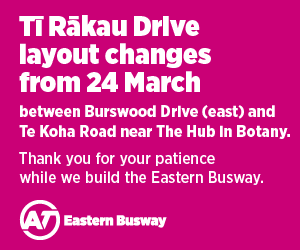
Tearfund international programmes director Tim Manson recently celebrated his 40th birthday overseeing a huge food relief and resilience project in Ethopia. The Pakuranga resident, who’s worked tirelessly to help bring relief to East Africa’s hunger crisis, shares his personal experience with the Times.
- By Tim Manson
Over the past few weeks, I’ve been trying to process what I witnessed in Southern Ethiopia at the beginning of May.
While I was there, I sat with many farming families in Borena District who are experiencing a severe hunger crisis due to three years of failed rains. Their words are difficult to forget.
I live with my family in Pakuranga but I grew up in Cote d’Ivoire and two of my children are from Uganda. Africa holds a special place in my heart.
Over the past two years we’ve been working to help these families get the urgent support they need to survive the drought, but the situation is incredibly grim.
One in six people in Ethiopia need emergency food aid.
On our first day there, people gathered to share their stories of how the drought had affected them.
A proud looking woman in a purple shawl called Mako Kanso told me: “Still the impact of the drought continues. The number of livestock is declining, and we are struggling to survive.”
Dima Jilo, an 85-year-old man, spoke to me next, and the group listened quietly, eyes looking down.
“[Before this drought] I had 45 cattle and some goats, and they all died,” he said.
“Every one of them. I am in a critical situation. I was a respected person, a good pastoralist.
“Because of the drought I lost everything.”
These stories of massive-scale loss of livestock were backed up by Government statistics.
Over the course of the three-year drought 3.3 million livestock were lost in Borena District, at a staggering value of close to NZ$1 billion.
But the story that stuck with me the most was from a woman called Amo Isaac.
A mum-of-five, she described to me the harsh reality of having nothing to feed her children.
“When drought comes, it first affects children, elderly and women the most.
“When my kids are crying because there is no food, I have nothing to give them.
“The drought has levelled everybody equal. Now my only income is from cutting and selling firewood.”

Every humanitarian knows that children are among the worst affected in a crisis.
To hear this from a mother talking about her own kids is different though.
My mind wandered to my own four kids and how desperate I would feel if they cried for food and the kitchen was empty.
Before the drought, levels of malnutrition in Borena were at 4 per cent of the population.
Today they are at 20 per cent and climbing. I visited a clinic in the village where I came face to face with these statistics.
We saw children being triaged using a simple measuring system, known as MUAC (Mid to Upper Arm Circumference).
Two-year-old Sabla Indo’s arm measured just 10.7cm in circumference when it should be above 12.5cm.
On the mattress next to Sabla lies an exhausted Suyada.
Also two years old, her limbs have started to swell, a symptom of the most severe malnutrition.
Nurse Elsa Hailmichael has cared for this community for 10 years.
She told me that in the past six months the number of new patients she’s seeing has more than doubled.
“At least 30 every month,” she says, and she can’t save them all.
“There is a mother in this village who has five children and three of them have died here in the past three months.”
This hunger crisis is not confined to the few villages we visited near the Kenyan border. Several regions of Ethiopia are at level four of a five-point scale used to warn of impending famine.
Tearfund and our partner organisation in Ethiopia are absolutely determined to get support to these people in time.
We’re responding by providing emergency food, drought-tolerant crop seeds and goat restocking to some of the most severely affected people in the region.
The New Zealand Government is also concerned about this escalating crisis and a few weeks ago we heard the encouraging news that it’s committed funds to support affected people in Ethiopia and Somalia.
This is undoubtedly the worst crisis I’ve seen in my 15-year humanitarian career and yet barely anyone is talking about it.
But I know together we can make both an immediate and a sustainable difference.
We can assist families to survive and rebuild their lives.
If you’d like to get behind this work, $100 will feed a family of four for a month.
I urge you to do what you can online at www.tearfund.org.nz.










